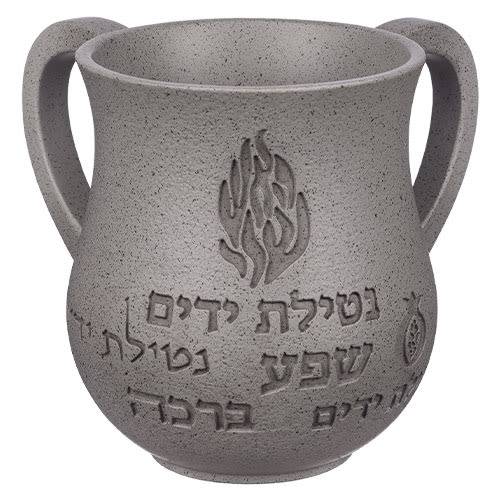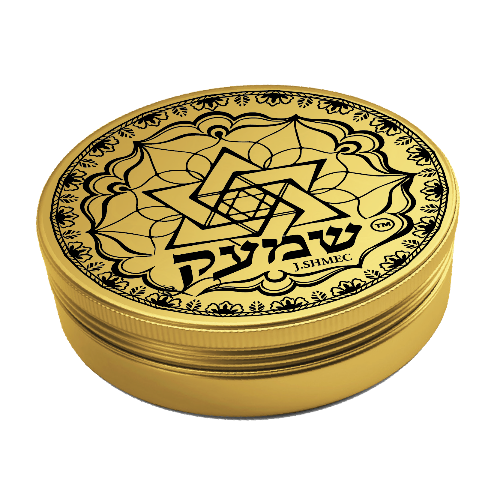
Staying Out of Strife’s Way
Rebbe Nachman says that by avoiding strife and controversy the Rabbi Nechuniah did, we can grow more spiritually in one day than others might grow in a whole year…

Last year, before Passover, we moved into our first apartment in Jerusalem. It was a warm night and there hadn’t been much rain. Stepping through the sliding glass door onto our patio I suddenly felt a refreshing splash of water. Shedding my western notions about rain, I thought, this is surely a time to thank Hashem!
Looking up I came eye-to-eye with reality. My upstairs neighbor was leaning out his window holding the evidence in his hands: an empty bucket whose filthy contents were just dumped on my head. A PET scan of my brain, at that moment, would have been white hot – enough to light up the West Bank!
“Welcome to Israel! Hey my name isn’t Haman, its Zev.”
What was I feeling? Here is a partial list: rage, revengeful, blaming, argumentative, hostile, violent,  emotionally unstable, honor-seeking, intolerant, judgmental, spiteful, irrational and intimidating – not my best traits.
emotionally unstable, honor-seeking, intolerant, judgmental, spiteful, irrational and intimidating – not my best traits.
The feelings came automatically. They were real and I couldn’t stop their sudden onset.
“Help me, Hashem, this is too much! Spare me from anger’s trap. Lead me in the way that You would have me go.”
Uncharacteristically, I only said about 2% of what I was thinking. It was actually possible to feel my feelings without compulsively and dysfunctionally acting on them. My feelings soon passed, and, after a sincere apology, my neighbor came down and cleaned up the mess.
When my wife saw what was going on, she whispered, her standard response: “Don’t worry, Zev, I’ll bake them a nice cake for Shabbos.” “Gevalt!” (“woe is me”)
This Passover, the same young man came down with his tools to help us with our chores. I’m guessing that he knew I wasn’t handy because six of his younger sisters have become good friends with my daughter. They play here all the time. Their mother has become one of my wife’s best friends in our building. And, they also invite us to their simchas (family celebrations).
Look at what we would have lost if I hadn’t taken a few seconds to pray.
And what would have happened if I hadn’t taken a few seconds to pray.
That’s easy: It’s likely that my neighbor would not have apologized; I’d be eating myself up with resentment every time I saw him; there would be an undercurrent of bitterness and hostility between the members of our families; and there would literally be a deadening our hearts every time we saw each other.
Making an effort to improve one’s character is by far the hardest part of keeping the Torah – it’s harder than learning or doing mitzvot.
How do we know how much Hashem loves our efforts to work on ourselves? Read this!
The path of self-improvement, the obligation to perfect our character, is a commandment in the Torah that was passed down to us from Mount Sinai. Pirkei Avos, which is primarily a guide to self-improvement in all areas of our lives, was chosen above any other part of the Torah to begin with the following words: “Moshe received the Torah from Sinai, and gave it to Yehoshua, and Yehoshua gave it to the Elders, and the Elders gave it to the prophets…”
Life can be truly enjoyable when we cultivate the traits of patience and forgiveness, and it can be truly bitter when we let every little thing annoy us.
The Talmud tells us that Rabbi Nechuniah ben HaKaneh was granted “length of days” because he was conciliatory and avoided controversy in every area of his life. The simple meaning of this teaching is that “length of days” means that he lived a long life. On a deeper level, however, Rebbe Nachman says it means that each day of Rabbi Nechuniah’s life was utilized to the utmost and therefore blessed with success. Rebbe Nachman is telling us that by avoiding strife and controversy, like Rabbi Nechuniah did, we can grow more spiritually in one day than others might grow in a whole year. This is how much Hashem loves our efforts to be kind and tolerant of everybody: In the merit of our kindness and mercy for others, Hashem will give us more Blessing in one day than others get in a year or more. This is the true meaning of “length of days”.
But, if G-d forbid, we let our days slip by without using them to emulate Hashem’s traits of kindness, forgiveness and love, then our days are considered short. It was only in the merit of his patience and forgiveness of others that Rabbi Nechuniah was able to reach such lofty levels of spirituality.
It might be very easy for me to judge my landlord as a callous, exploitative, money-hungry, person; but what will I have from it? He still isn’t going to fix my sink or repair my screens and I’ll be stuck with all that anger.
Then there’s that neighbor who still owes me 100 shekels and shows no intention of paying it back. I can either waste my days and years worrying over small-minded things and spend my life constantly involved in arguments, or I can view my monetary losses as a gift that I freely give to Hashem. When I think about how much I freely receive from Hashem every day; my payback to Him doesn’t seem expensive at all.
It’s the same with the dishonest cabbie, or the guy who bangs on your door at 11:30 at night growling because you didn’t give him enough money. It’s really up to us. We can either go back to bed full of small-minded hatred or we can refuse to judge him because we’re not in his place, Thank G-d. Also in the way that we judge others; that’s how Hashem will judge us.
In the merit of our avoidance of controversy, may Hashem annul all harsh judgments on us and shower us with buckets and buckets of his crystal clean kindness, mercy, love, tolerance and sustenance.
May you immediately see a Heavenly downpour of abundant Kindness and Mercy in your life today!
Amen!











Tell us what you think!
Thank you for your comment!
It will be published after approval by the Editor.